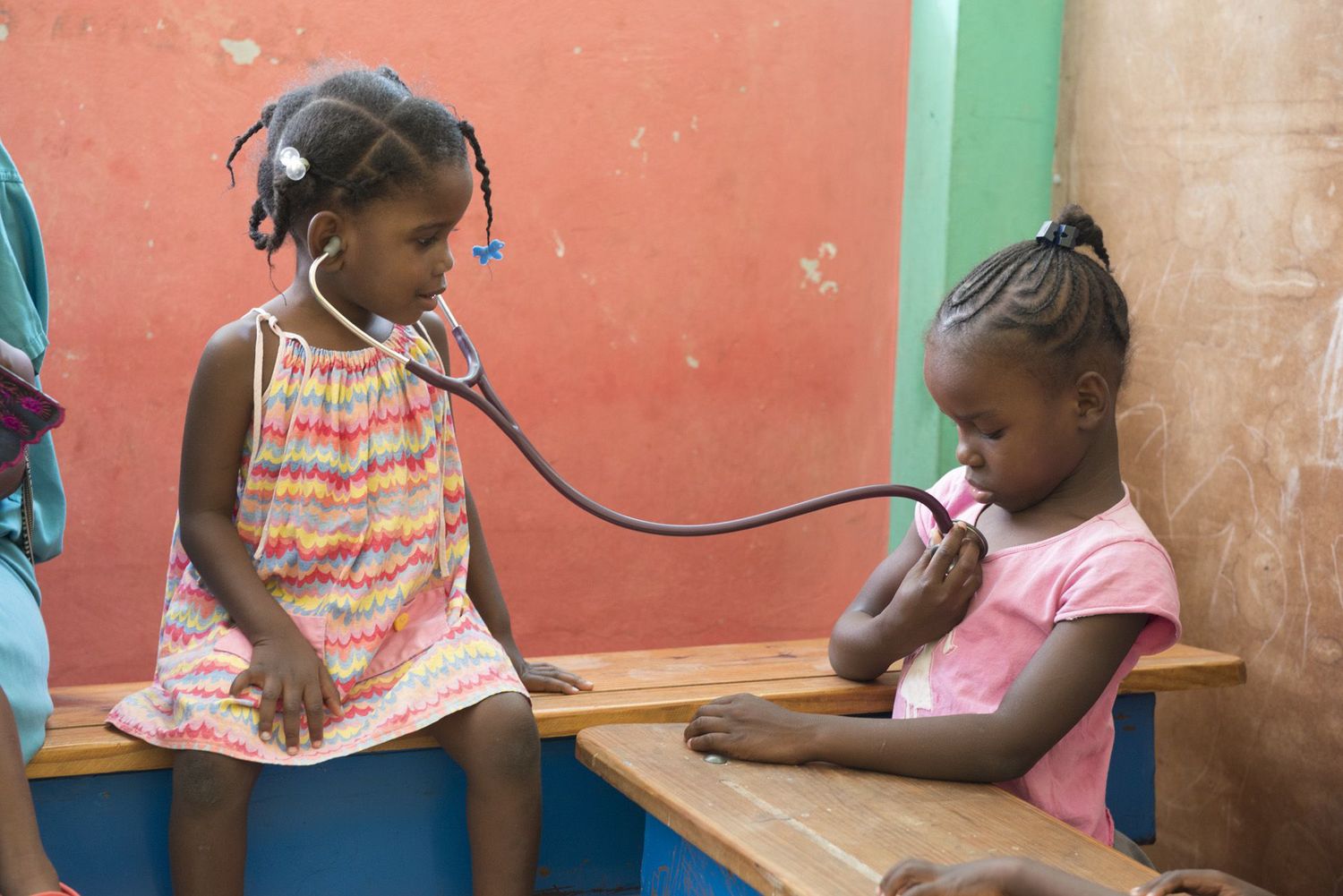Today was a sentimental good bye to Mussote. Thanks to Lisa and Aline’s study and the home visits by Dr. Puuvula and the team, plus the 1000 patients and the amazing group of translators we have we really learned more about the community this year. The students are already reviewing the data they collected and I look forward to posting their hard work here and we anticipate they will publish it in medical journals. I just love this country. It is beautiful. The angular mountains, the tropical plants and sun, the afternoon tropical rains are delicious. As much as the physical beauty here, it is the people that I love. Most that I have met are gentle, kind, and have a great sense of humor. Given Haiti’s history and the abuses it has endured from the US and the rest of the developed world they have no reason to be kind to us.
We squeezed into the bus with our now empty suitcases and took the bumpy, twisted ride back to PAP. I intentionally did not take Dramamine so I would be awake for the trip back, which was regrettable. On the other hand I got to talk to Chandler, our newest translator added to the group. He is in school to become an auto mechanic. He is the oldest of 4 siblings. His family is not wealthy. His father is a welder and mother is a merchant as many of the women are in Haiti. One sees women selling old clothes, mangos, vegetables, charcoal, peanut brittle on the streets everywhere. Not many actual shops in Haiti other than the colorful lottery booths. It turns out that Chandler and his family lived in a tent for 2 years after the earthquake. He used a shared bucket as a toilet for 2 years until his home was repaired and deemed safe to return to. He states that aide came to them for about 2 months after the earthquake and then stopped. Then they were on their own for food and survival. Through all of this he continued to go to school and work. He says this was all “Okay” he is safe now, his family is back in their home and none of the family was fatally injured in the quake. My mind goes to whether I would survive living in a tent for 2 years and be just fine with it?! I can barely look out the window when we reach Port au Prince. There is so much trash on the street and men are there scooping up the sewer water into plastic water bottles and I am too nauseous to imagine for what? Many men are dressed in suits and women in dresses on the dusty streets heading to church for Easter Sunday. Most Haitians are on foot, some are on motorcycles, and Taptaps which are colorful taxi’s that fit 10 people into the back of pickup trucks with covered benches. From our bus we can peak into the open doors of the churches. Inside the church it appears to be a clean oasis a few stops off the grim of the street.
Upon Further discussion with Chandler, we talk about his plans after school. He worries about employment once he is done his training. He is taking his skills very seriously and plans on being excellent mechanic but feels he may have to go to the Dominican Republic in order to have any chance of finding a shop to work in. Lately there has been horrible tension against Haitians in the DR including a lynching (unbearable). Both our minds went in the same direction. As I was about to offer to buy him the tools that he needs for his next level of school he had asked. Equipment is quite expensive in Haiti since most things mechanical need to be shipped from elsewhere to the island. Thus the plan to ship him the wrenches he needs is in motion. The next plan is to start a crowd sourcing… start up campaign so he can open his own mechanics shop in Port-au-Prince. He smiled from ear to ear, imagining himself employing classmates, providing for his younger brothers and sisters while they go through school and giving to his parents. Chandler was always smiling but this one was particularly broad. He replies to the idea “What you have just said makes me very happy.” You could see his world just open up. I am imagining all the Chandlers in Haiti who have gone through school despite living in huts and tents. Can we help enough of them to have the opportunity to turn the city into one that the merchants are in stores not on the street, there are restaurants, clean streets, full of small businesses, offices, hospitals that have full labs, radiology, surgery rooms, ICU capabilities? Thus the “empowerment” part of HEAL was in full motion this trip on many levels. I am happy to give my small part and start with one Chandler, and one small village in the mountains.


